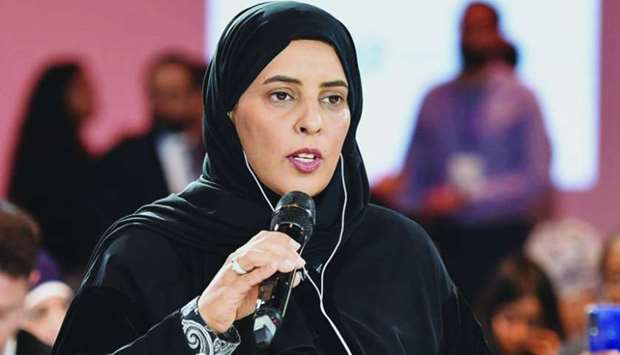Education leaders need to adapt to the rapid transformations happening in the systems and schools, a World Innovation Summit for Education (WISE) official has exhorted.
“There is a general consensus now, particularly in the wake of Covid-19, about what 21st century learning looks like, but we also must apply that same criteria to our educators and school leaders,” said Dr Asmaa al-Fadala, director of Research and Content Development at WISE, a Qatar Foundation initiative, while speaking about the 2020 report by the Economist Intelligence Unit (EIU) and sponsored by QF on the future of higher education.
The EIU report, titled ‘New schools of thought: Innovative models for delivering higher education’, highlights perspectives on future of learning as well as the needs of students and societies in a post-Covid-19 world.
With the Covid-19 pandemic forcing universities to embrace online learning and disrupting traditional ways of delivering education, the report analyses how certain innovative higher education models are addressing social, political and economic challenges, highlighting how institutions must rethink the education and adapt to the demands of a rapidly changing world.
Dr al-Fadala said if 21st century learning embodies an approach to education that embraces academic skill with behavioural competencies - such as collaboration, problem-solving, creativity and life-long learning – so that the learners can survive and thrive in this uncertain world, the same skills and competencies are required for the educators and school leaders to support, propel and influence this learning.
“Shouldn’t we be shifting our approach to school leader development from one that centres on management to one that prioritises many of the same skills and competencies that we have recognised as necessary in our future-ready learners?” she asked, highlighting that it will necessitate a paradigm shift from ‘school leader as manager’ to school leader as agile, collaborative, technologically savvy, problem solver who supports and nurtures future-prepared systems of learning.
According to the official, the Covid-19 crisis has demonstrated that a university education is now more essential than ever. “On an economic level, resilience of individuals has been highly dependent on having the knowledge and skillsets that come with advanced degrees, especially in the fields of education, technology, industry and medicine.
Meanwhile, workers in other, more traditional industries have been more negatively affected, especially those whose jobs don’t afford the flexibility to work remotely. So, this crisis demonstrates the need to build expertise in those highly skilled sectors that we are finding in demand, especially given the likelihood that global issues like Covid-19 may become more common,” she explained.
“What this crisis has really laid bare is that our children will enter an unprecedented world of uncertainty. Schools of the past will not prepare them for the future they will inherit and right now it is hard to even predict what that future may look like, including what career opportunities there will be. Over and over again, I keep hearing that the jobs of tomorrow may not even exist today,” added al-Fadala.
The EIU report, titled ‘New schools of thought: Innovative models for delivering higher education’, highlights perspectives on future of learning as well as the needs of students and societies in a post-Covid-19 world.
With the Covid-19 pandemic forcing universities to embrace online learning and disrupting traditional ways of delivering education, the report analyses how certain innovative higher education models are addressing social, political and economic challenges, highlighting how institutions must rethink the education and adapt to the demands of a rapidly changing world.
Dr al-Fadala said if 21st century learning embodies an approach to education that embraces academic skill with behavioural competencies - such as collaboration, problem-solving, creativity and life-long learning – so that the learners can survive and thrive in this uncertain world, the same skills and competencies are required for the educators and school leaders to support, propel and influence this learning.
“Shouldn’t we be shifting our approach to school leader development from one that centres on management to one that prioritises many of the same skills and competencies that we have recognised as necessary in our future-ready learners?” she asked, highlighting that it will necessitate a paradigm shift from ‘school leader as manager’ to school leader as agile, collaborative, technologically savvy, problem solver who supports and nurtures future-prepared systems of learning.
According to the official, the Covid-19 crisis has demonstrated that a university education is now more essential than ever. “On an economic level, resilience of individuals has been highly dependent on having the knowledge and skillsets that come with advanced degrees, especially in the fields of education, technology, industry and medicine.
Meanwhile, workers in other, more traditional industries have been more negatively affected, especially those whose jobs don’t afford the flexibility to work remotely. So, this crisis demonstrates the need to build expertise in those highly skilled sectors that we are finding in demand, especially given the likelihood that global issues like Covid-19 may become more common,” she explained.
“What this crisis has really laid bare is that our children will enter an unprecedented world of uncertainty. Schools of the past will not prepare them for the future they will inherit and right now it is hard to even predict what that future may look like, including what career opportunities there will be. Over and over again, I keep hearing that the jobs of tomorrow may not even exist today,” added al-Fadala.


